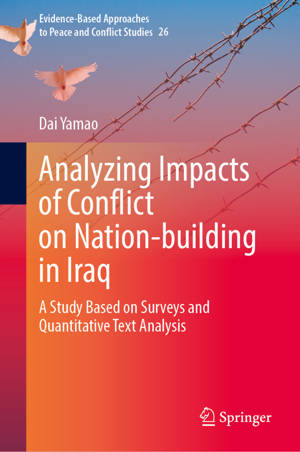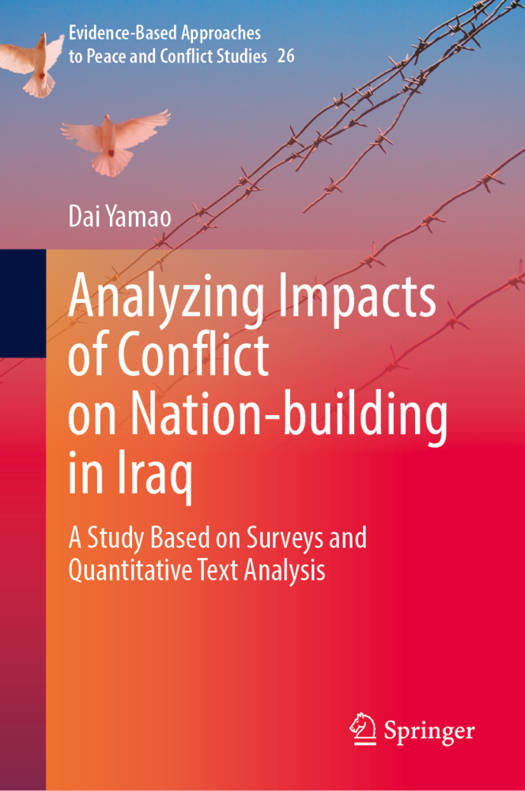
- Retrait gratuit dans votre magasin Club
- 7.000.000 titres dans notre catalogue
- Payer en toute sécurité
- Toujours un magasin près de chez vous
- Retrait gratuit dans votre magasin Club
- 7.000.0000 titres dans notre catalogue
- Payer en toute sécurité
- Toujours un magasin près de chez vous
Analyzing Impacts of Conflict on Nation-building in Iraq
A Study Based on Surveys and Quantitative Text Analysis
Dai YamaoDescription
This is the first monograph to empirically analyze the impact of the myriad conflicts that arose within Iraq in the wake of the U.S. invasion of Iraq in 2003 on nation-building. It draws upon a plethora of primary sources, including school textbooks and local newspapers, in conjunction with a range of unique surveys, quantitative text analysis, and other methodologies. This study represents a distinctive attempt to answer the question of why national cohesion has been maintained despite the occurrence of devastating conflicts and a brutal civil war in Iraq. It employs unique data and a mixed-methods approach to achieve this goal. It has frequently been asserted that the Iraqi state descended into dysfunction and national unity was undermined as a consequence of the various conflicts that have occurred in the post-war period. However, the author's multiple surveys revealed that, despite a lack of trust in state institutions, individuals have high expectations of their role. Moreover, there is a paucity of trust in non-state actors who are responsible for fulfilling the functions of the state in its absence. The surveys also indicate a robust sense of Iraqi identity in spite of the civil wars and conflicts that divide the population, along with a high value placed on national integration policies. This book elucidates the factors that have led to these contradictory attitudes. Focusing centrally on issues surrounding post-conflict nation-building in Iraq, the book also offers methodological suggestions for analyzing various aspects of the impact of conflict in other post-war societies, a topic that has not been thoroughly studied empirically.
Spécifications
Parties prenantes
- Auteur(s) :
- Editeur:
Contenu
- Nombre de pages :
- 250
- Langue:
- Anglais
- Collection :
- Tome:
- n° 26
Caractéristiques
- EAN:
- 9789819675593
- Format:
- Livre relié
- Dimensions :
- 155 mm x 235 mm

Les avis
Nous publions uniquement les avis qui respectent les conditions requises. Consultez nos conditions pour les avis.






